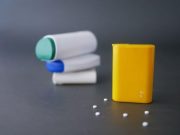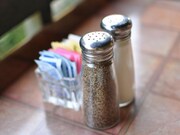Tag: Sugar Substitutes
Artificially and Sugar-Sweetened Beverages Tied to New Chronic Kidney Disease
Moderate natural juice consumption tied to lower risk
Long-Term Artificial Sweetener Intake Tied to Obesity Risk
Findings seen for aspartame, saccharin, and diet beverage consumption over 25 years of follow-up
WHO Agency Declares Aspartame a Possible Carcinogen
A WHO agency on Thursday declared aspartame is a possible carcinogen, fueling further debate on the safety of the artificial sweetener
WHO Experts Take Another Look at Aspartame’s Safety
Aspartame continues to have approval from the U.S. Food and Drug Administration as a safe product
WHO Says No to Artificial Sweeteners for Weight Loss
Artificial sweeteners linked to type 2 diabetes, cardiovascular disease, and early death in adults
Common Sugar Substitute Negatively Impacts Cardiovascular Risk
Erythritol linked to incident MACE risk and enhances platelet reactivity and thrombosis formation
Artificially Sweetened Drinks May Up Risk for Urinary Incontinence
Higher risk seen among women drinking one or more beverages per day
Higher Artificial Sweetener Consumption Linked to CVD Risk
Aspartame intake linked to increased risk for cerebrovascular events, while acesulfame potassium and sucralose linked to CHD risk














